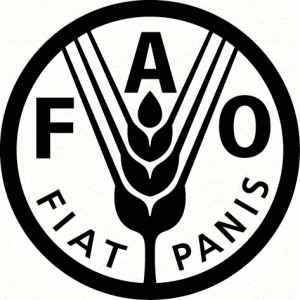FF
Friday, April 25, 2014
FAO: healthy oceans to feed 9 billion people – Weather Web
->
 Need urgent and coordinated action to restore health of the oceans of the planet and ensure well-being and food security in the long term to a growing world population. This’ is the key message of the International Summit which ends today in The Hague, in the Netherlands. Participating in the World Summit of action for the oceans (22-25 April) Ministers and high level representatives of governments, the fishing industry, the communities ‘coastal, the world of science and society’ civil with the intent to attract the ‘global attention and investment to address the three major threats to the oceans of the planet and food security: the excessive overfishing, habitat destruction and pollution. “It ‘Urgent action is needed and coordinate the community’ to address international threats on our oceans – Dijksma said Sharon, Minister of Agriculture of the Netherlands, which hosts the summit -. Innovative solutions must be identified at the local level that are able to put together the ecological with economic ones and implement them in other regions. The Summit Global Action for the oceans Hague offers the opportunity ‘to change the situation. ” On average, 17 per cent intake of animal protein in the world comes from fisheries and aquaculture, and the demand for protein from fish and ‘expected to double over the next 20 years, although about 28 percent of world stocks are already ‘overexploited. At the same time climate change threatens biodiversity ‘, habitats and productivity’ of our fisheries. “Oceans in good health have a central role to play in resolving one of the most ‘great problems of the twenty-first century – how to feed 9 billion people by 2050,” said Árni M. Mathiesen, deputy director general of the FAO Fisheries Department and Aquaculture. The summit focuses on the underlying causes that led to overfishing, an increase of marine pollution and the loss of critical habitats and possible solutions. This means being able to balance the demand for growth with the need ‘for the conservation of marine areas; tackle illegal, unreported and unregulated (IUU) fishing on the high seas and exclusive economic zones national; and to ensure that private sector growth does not come at the expense of the livelihoods of the communities’ local. “There are solutions combining ecological needs with economic ones,” said Juergen Voegele, Director of Agriculture and Environmental Services at the World Bank, co-organizer of the event. “We have the chance ‘to align all of our efforts and bring solutions to the local level. With public-private partnerships and shared approaches can restore the health of the oceans and ensure food and jobs to communities’ around the world. ” Among the approaches discussed will be highlighted inclusive partnerships that combine public, private, community ‘local society’ civil.
Need urgent and coordinated action to restore health of the oceans of the planet and ensure well-being and food security in the long term to a growing world population. This’ is the key message of the International Summit which ends today in The Hague, in the Netherlands. Participating in the World Summit of action for the oceans (22-25 April) Ministers and high level representatives of governments, the fishing industry, the communities ‘coastal, the world of science and society’ civil with the intent to attract the ‘global attention and investment to address the three major threats to the oceans of the planet and food security: the excessive overfishing, habitat destruction and pollution. “It ‘Urgent action is needed and coordinate the community’ to address international threats on our oceans – Dijksma said Sharon, Minister of Agriculture of the Netherlands, which hosts the summit -. Innovative solutions must be identified at the local level that are able to put together the ecological with economic ones and implement them in other regions. The Summit Global Action for the oceans Hague offers the opportunity ‘to change the situation. ” On average, 17 per cent intake of animal protein in the world comes from fisheries and aquaculture, and the demand for protein from fish and ‘expected to double over the next 20 years, although about 28 percent of world stocks are already ‘overexploited. At the same time climate change threatens biodiversity ‘, habitats and productivity’ of our fisheries. “Oceans in good health have a central role to play in resolving one of the most ‘great problems of the twenty-first century – how to feed 9 billion people by 2050,” said Árni M. Mathiesen, deputy director general of the FAO Fisheries Department and Aquaculture. The summit focuses on the underlying causes that led to overfishing, an increase of marine pollution and the loss of critical habitats and possible solutions. This means being able to balance the demand for growth with the need ‘for the conservation of marine areas; tackle illegal, unreported and unregulated (IUU) fishing on the high seas and exclusive economic zones national; and to ensure that private sector growth does not come at the expense of the livelihoods of the communities’ local. “There are solutions combining ecological needs with economic ones,” said Juergen Voegele, Director of Agriculture and Environmental Services at the World Bank, co-organizer of the event. “We have the chance ‘to align all of our efforts and bring solutions to the local level. With public-private partnerships and shared approaches can restore the health of the oceans and ensure food and jobs to communities’ around the world. ” Among the approaches discussed will be highlighted inclusive partnerships that combine public, private, community ‘local society’ civil.
No comments:
Post a Comment